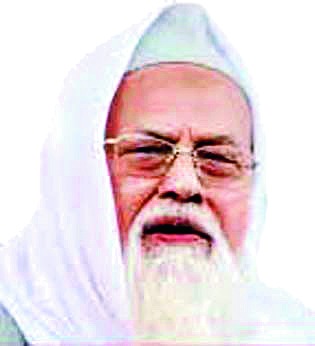
Bhopal, Aug. 22: For the All India Muslim Personal Law Board, it will be back to Bhopal again.
The AIMPLB will meet in the Madhya Pradesh capital on September 10 to chalk out its future strategy, more than 12 years after it thought it had given a quiet burial to the instant triple talaq.
That was in May 2005 when it adopted a model nikahnama (marriage contract) at a meeting in Bhopal.
However, many were sceptical even then.
Today, after the Supreme Court struck down the practice of instant divorce through triple talaq, AIMPLB insiders conceded that the model nikahnama never worked.
The contract has a mandatory clause that says in cases of marital discord, a couple would have to approach the qazi or the local family court. But hundreds of Muslim men across the country continued to pronounce "talaq, talaq, talaq" in one sitting and in some cases over the phone, through Skype or even on WhatsApp, abruptly ending the marriage and without giving the wife a chance to make any representation. That was despite repeated Friday sermons urging people to shun the practice.
One of those who devoted their entire lectures on the "corrupt" and "despicable" aspects of instant talaq was Bhopal city qazi Maulana Mushtaq Naqvi.
"We have asked couples to see reason, provided counselling and, if everything failed, worked out a divorce settlement to ensure that the meher (bridal price), maintenance and gifts such as jewellery are paid before annulling the marriage," the AIMPLB member said.
But men in the middle of a divorce would avoid approaching him, the maulana added, recalling his experience as head of the Bhopal qaziat, an informal Sharia court that deals with issues like marriage and divorce.
Back in 2005, some women's groups had remained pessimistic about the success of the model nikahnama, saying gender inequality and low socio-economic indicators were stumbling blocks to social reforms.
Today, some Muslim women NGOs said most men, while divorcing their wives through instant talaq, never bothered to refer to the model nikahnama. "The AIMPLB's call to boycott such men and families remained on paper," said a Bhopal-based activist who asked not to be named.
The AIMPLB has guardedly welcomed the Supreme Court's verdict, promising to implement the order invalidating the instant talaq, but the divisions have surfaced. Barring a few members who are part of non-NDA parties, most AIMPLB members did not want a confrontation either with the Union government or the judiciary.
In fact, a campaign of sorts is on not to ask for legislative measures as amendments in the Muslim Personal Law (Shariat) Application Act, 1937, or a uniform civil code, as that might swivel the focus on other contentious issues like alimony, polygamy and age of consent.
It is believed that AIMPLB chief Maulana Rabey Nadvi was against making a strong case in defence of the instant talaq during the Supreme Court hearings but a section of lawyers and political leaders within the board had prevailed.<>
The AIMPLB chief is also concerned about vice-president Maulana Kalbe Sadiq's sense of disillusionment with the board. Nadvi wants the AIMPLB to maintain its profile as an apex body of Muslims in the country representing the community's various sects.
Maulana Sadiq had recently said that Muslims should voluntarily give up their claim on the disputed Babri land, even if the Supreme Court's verdict goes against them.
The top court is set to commence the final hearing of the Ram Janmabhoomi-Babri Masjid title dispute from December 5, a day before the 25th anniversary of the mosque's demolition.











